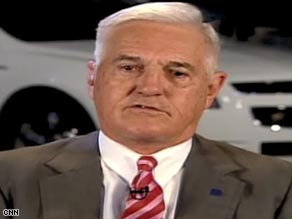WASHINGTON, D.C.--The White House's $3.6 trillion budget, outlined Thursday, provides a broad plan for government spending during the next decade and a road map for slashing the deficit from $1.75 trillion to $533 billion by 2013. But its true value may be in what it says about how Americans will be taxed during that same period.
Specifics of the Obama administration's budget plan won't be unveiled until April--standard procedure for a first-year president. But many of the broad strokes are campaign promises finally put to paper, causing worry from some quarters of the business community. "There's a significant business tax increase suggested in this budget," says Clint Stretch, a tax expert at Deloitte Tax LLP in Washington.
Among them is the closure of tax "loopholes" for the oil and natural gas industries, raising revenue by $32 billion over the next decade. In part, the money would come from reinstating an excise tax on oil and gas from the Gulf of Mexico. It would take away a tax deduction that treats oil and gas as manufactured goods. And it would repeal provisions that allow some drilling costs to be counted as expenses instead of an investment.
The industry, obviously, is not happy. "New taxes could mean fewer American jobs and less revenue at a time when we desperately need both," says Jack Gerard, president of the American Petroleum Institute. Less revenue? Higher taxes would discourage oil and natural gas investment domestically, sending it overseas, he argues.
Another major concern is a very vague line item that calls for better implementation of international tax enforcement, reform of tax deferral for income earned and kept overseas, and "other tax reform policies." It's expected to raise revenues by $210 billion during the next 10 years.
Business groups don't like what they see. "We've all been invited to the dinner, but some of us turn out to be the main course," says Martin Regalia, chief economist for the U.S. Chamber of Commerce.
Of course, not all proposals affecting business are tax hikes. As he proposed on the campaign trail, Obama's budget calls for an elimination of capital gains taxes on small businesses, which would begin to take effect in 2014. A permanent expansion of the "research and experimentation" tax credit would take effect in 2010, costing $74.5 million over a 10-year period.
Also assumed is an expansion of a tax provision that allows businesses to carry back current losses to prior years when they were profitable. That means they can get big refunds from the Treasury now from the taxes they paid in their profitable years. The details aren't spelled out, but PriceWaterhouseCoopers tax expert Lindy Paull says the figures indicate that the "carryback" period will be five years for all businesses.
'Business' 카테고리의 다른 글
| Apple adds power to Mac desktop line (0) | 2009.03.04 |
|---|---|
| 10 Suprising Sales Items (2) | 2009.03.04 |
| U.S. Economy: Bad To Worse (0) | 2009.02.28 |
| US bank regulator expands debt guarantee program (0) | 2009.02.28 |
| Citi Reaches Deal With Uncle Sam (0) | 2009.02.28 |





